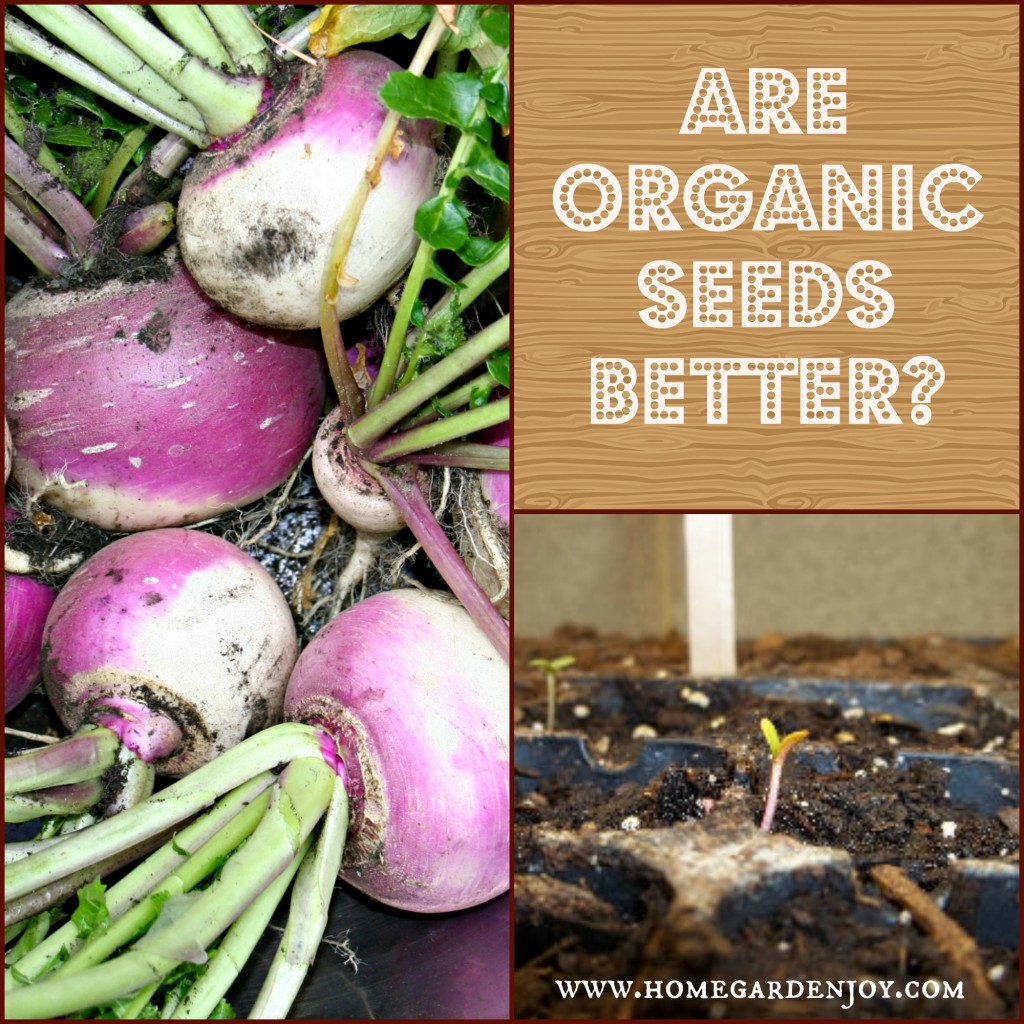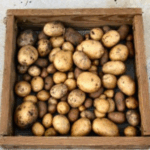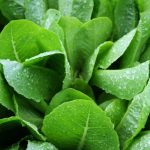 The seed catalog onslaught has begun in my home, and with it, the pitches to buy organic seeds. At the local nursery and garden centers, the racks of organic vegetable and flower seeds now outnumber racks of conventional seed packages. I tend to grow most of my plants using organic gardening methods, mostly because chemicals creep me out. That’s my non-scientific way of saying that I don’t like pouring chemicals onto my crops because I’m never quite sure of the long-term effects on the soil, insects or plants, not to mention my own health. While I will mix a little conventional fertilizer into the soil if plants need it, or spray a bit of Neem oil spray on my roses, I don’t use chemical pesticides the way my dad did in our tiny suburban garden in New York. No, it’s mostly organic around here, although not strictly organic.
The seed catalog onslaught has begun in my home, and with it, the pitches to buy organic seeds. At the local nursery and garden centers, the racks of organic vegetable and flower seeds now outnumber racks of conventional seed packages. I tend to grow most of my plants using organic gardening methods, mostly because chemicals creep me out. That’s my non-scientific way of saying that I don’t like pouring chemicals onto my crops because I’m never quite sure of the long-term effects on the soil, insects or plants, not to mention my own health. While I will mix a little conventional fertilizer into the soil if plants need it, or spray a bit of Neem oil spray on my roses, I don’t use chemical pesticides the way my dad did in our tiny suburban garden in New York. No, it’s mostly organic around here, although not strictly organic.
So why, then, am I dismayed by the abundance of organic seeds at the garden center? It’s because I’m not sure they’re worth it.
All About Organic Seeds
First, let’s explore what organic garden seeds actually are compared to what many people think they are.
Organic seeds are seeds harvested from parent plants that were grown using organic gardening methods. In order to be promoted and labeled as organic seeds, the Cooperative Extension office states that they must follow protocols established in 2002 for organic seed production. In the United States, the Agricultural Marketing Service, part of the USDA, regulates use of the term organic.
When you see a seed package labeled organic, you can be generally assured that:
- The plants which produced the seeds were raised using organic methods as certified by the USDA.
And that’s about it.
What!? Aren’t the seeds healthier, better, or able to produce super-duper vegetables, fruits or flowers?
Maybe yes, maybe no.
Are Organic Seeds Better
One important reason why people choose to purchase organic garden seeds is to reduce the amount of what is called “upstream pollution”. Upstream pollution refers to the amount of pollution produced as a byproduct of conventional seed production.
In a conventional seed production facility, plants are grown in large fields or greenhouses where chemical fertilizers and pesticides may be used to encourage growth and reproduction. Large-scale production means the most economical methods are used to grow the most salable crops.
As a result, there may be significant pesticide application or pollution run-off into the soil and local waterways. There may NOT be, which is also important to keep in mind. It depends on the growing operation, the crops produced, the climate, the environment, and even the year.
Most growers that I have met throughout my career in the garden center industry many years ago did their best to conserve nature. The idea that conventional crop production is filled with men that look like the guy on the Monopoly card cackling and rubbing his hands together greedily while he contemplates the chemical chaos he unleashed upon the unsuspecting public is, I’m afraid, a clever construct from those who want you to be afraid of conventional growing practices and the abundant food crops produced as a result of them.
Now don’t get me wrong. I know that too many chemicals hurt the environment. They hurt our bodies, too. I’m not debating that.
I’ve changed my way of thinking over the years from insisting on ‘all organic, all the time’ to ‘evidence based, all the time.’ This change in my way of thinking occurred after I became a Virginia Master Gardener. Because the classes that I took to earn my Master Gardener certification includes classes in conventional gardening methods, I learned about all the research that has gone into the products sold at the stores. While there are some I wouldn’t use if you paid me to use them, there are many that if used according to the package directions aren’t going to revoke your “I Love Nature” card.
Judicious, prudent use of any chemical products seems to me the safest course of action. As I mentioned before, I grow a mostly-organic garden. I’ll lose some vegetables to bugs without a qualm, but I’ll also sprinkle a little conventional fertilizer around a plant if I need to. It’s a balancing act with me, one that tends to tip to the side of organics most of the time but that may occasionally tip into the conventional side when warranted.
So to answer my original question: Are organic seeds better? Are they worth the additional money?
YES if…
- You are deeply committed to preserving the environment, so much so that you do not wish to contribute to the increase in pollution in any way;
- You wish to support organic farmers with your pocketbook;
- You are truly devoted to growing an all-organic garden, in every way.
NO if…
- You think that by buying organic seeds, the plants will be healthier or better than plants grown from conventional seeds. I have yet to find convincing scientific studies demonstrating that organic seeds produce better plants. (If you know of such studies, drop me a note, please, and point me to them.)
- You believe that growing plants from organic seeds makes the crops more nutritious or healthier for human consumption. Organic does not equal higher nutrition. It is an indication of cultural practices used to grow the seeds.
I hope that this frank discussion of organic seeds has helped you consider the pros and cons of organic versus conventional seeds. Let me know via the Comments box whether or not you are choosing to grow organic seeds this year, and if so, why.





Great post! When I used to live in Northern CA I’d garden on a half acre. We had the Seed Exchange right in Petaluma, CA. I’ve used both successfully. I did organic garden and you have to maintain organic for 5 years to be certified.Then we moved but, I still had a small garden. Now I live in a dessert like climate. But, grapes grown in our region. I have only been successful growing herbs and tomato s due to our summer heat waves topping 112* Pinned to my garden board.
Thank you for your kind words and for stopping by – I appreciate it!
Thanks for making this clear! We are searching for a house in the next few weeks and one of the things I really want is one where there is plenty of garden space. I have never had a garden before so I have much to learn!
Thanks for stopping by, Keisha. I hope you find a wonderful house!
This was very informative…I used to run an herb favors business and I always assumed organic was the way to go. I like that you are not so strictly organic for the sake of saying it. A true gardener will find the balance like you do to grow her garden the best way.
Thank you Vicki! Yes, balance in everything is my motto…not that I always achieve it, but it’s my motto! Be well!